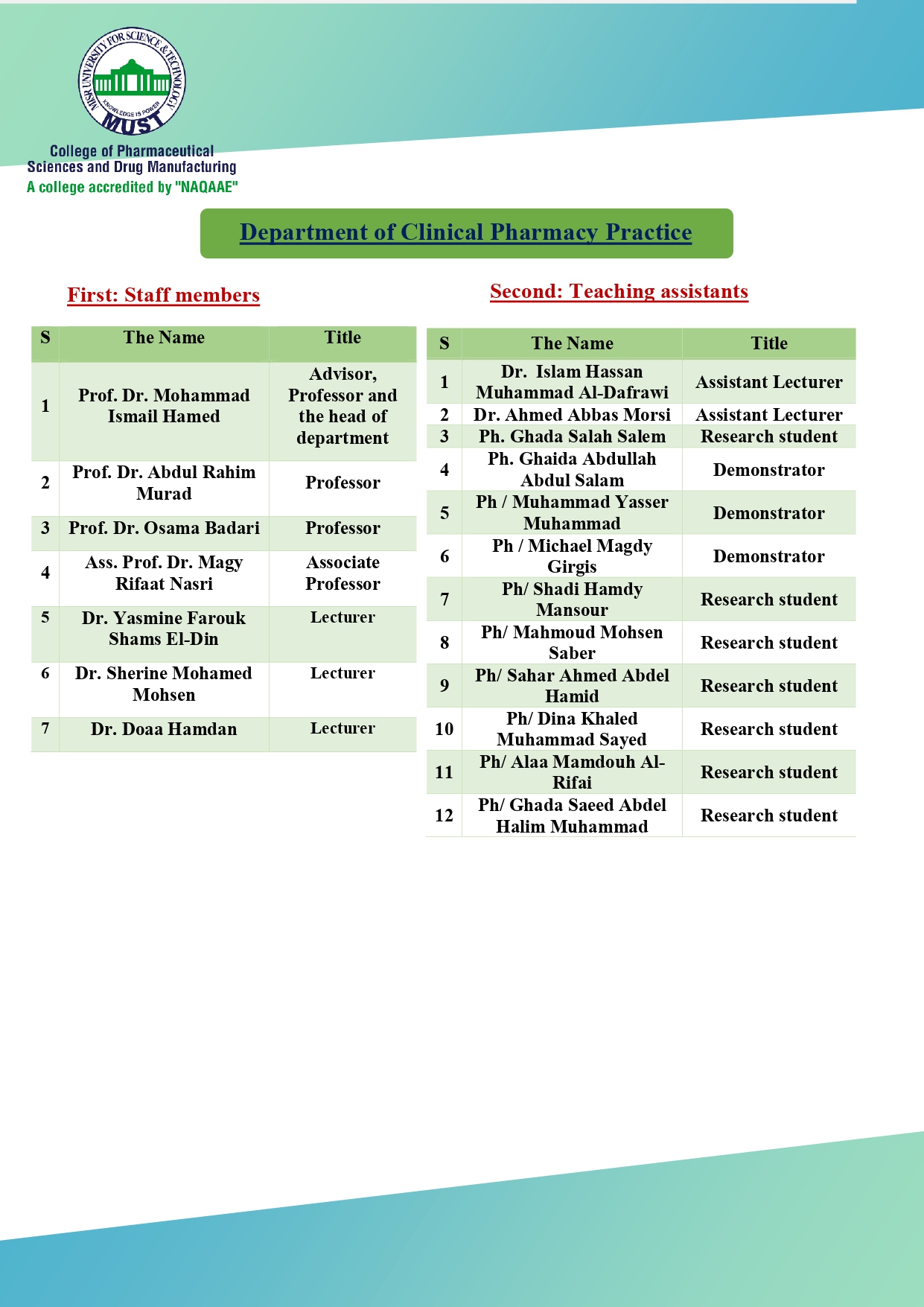Introduction
Clinical pharmacy practice, unlike the disciplines of pharmacy, is a comparatively recent and variably implemented form of practice of pharmacy. It encourages pharmacists and support staff to shift their focus from solely product-oriented role towards more direct engagement with patients and the problems they encounter with medicines. Over the past 25 years, there has been an emerging consensus that the practice of clinical pharmacy itself should grow from the collection of patients-related functions to a process in which all actions are undertaken with the intention of achieving explicit outcomes for the patient. In doing so, clinical pharmacy moves to embrace the philosophy of pharmaceutical care.
Clinical pharmacy department aims to achieve the overall goal of graduating a clinical pharmacist capable of promoting appropriate use of medicines and devices to ensure maximum clinical safety and efficacy of medicines. The goal is to balance efficacy versus risk of drug therapy for each patient. This also includes monitoring the therapy course and the patient’s compliance with therapy, minimizing the treatment expenditures borne by the national health systems and patients.
Clinical pharmacists play a vital role in the rational use of medicines, tifying drug – related problems, contributing to medication reviews and therapeutic recommendations and clinician pharmacist became responsible of the delivery of pharmaceutical care.
The delivery of pharmaceutical care is usually achieved via practical steps such as:
- Establishing the need for drug therapy.
- Administring the medicine.
- Providing the medicine.
- Monitoring therapy.
- Patient advice and education.
- Evaluation effectiveness.
Clinical Pharmacy Department aims to provide students of pharmacy an insight of the many of the inter – related problems of drug therapy. It should always be emphasized that although a general approach to drug treatment can be drawn, therapy of a given patient must be individualized.
In accordance with the university mission statement, clinical pharmacy department aims to enable students to acquire the cognitive, interpersonal, psychomotor, and analytical skills necessary for competent, reflective practice and lifelong professional development for their working life. The study of clinical pharmacy will provide subject-specific knowledge and skills as well as key transferable skills. Clinical courses will develop the knowledge and skills acquired either during earlier courses or through relevant practice.
